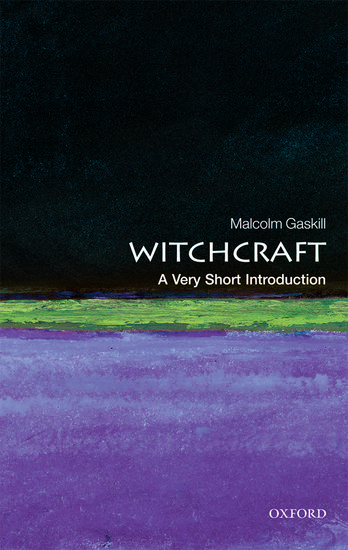Home >
A Very Short Introduction >
Innovation (2nd edition) (History)
A Very Short Introduction | History
Innovation (2nd edition)
ISBN: 9780199236954
Series: A Very Short Introduction
Innovation (2nd edition) (History)
A Very Short Introduction Innovation (2nd edition) (History) Media > Books > Non-Fiction > Education Books Expect Delays of Up to 4 Weeks| Order Below |
ISBN
9780199236954 (10-digit ISBN: 019923695X)
- Description
- Key Features
- Series Description
- Table of Contents
- Demonstrates how innovation is used to create wealth, productivity growth, and improved quality of life
- Considers future disruptive technologies such as AI, discussing their implications for work and employment
- Looks at the process of innovation, the ways organizations use their resources to innovate, and the eventual outcomes of innovation
- Explores innovation emerging from and for use in developing countries, such as digital money
- Considers how we consume the products of innovation
- Explains why failure in innovation is so common but at the same time so necessary
- Examines how the innovation process is stimulated by new technologies such as the internet
What is innovation? How is innovation used in business? How can we use it to succeed? Innovation, the ways ideas are made valuable, plays an essential role in economic and social development, and is an increasingly topical issue. Over the last 150 years our world has hit an accelerated rate of transformation. From aeroplanes to television and penicillin, and from radios to frozen food and digital money, the fruits of innovation surround us. This Very Short Introduction looks at what innovation is and why it affects us so profoundly. It examines how it occurs, who stimulates it, how it is pursued, and what its outcomes are, both positive and negative. Considering innovation today, and discussing future disruptive technologies such as AI, which have important implications for work and employment, Mark Dodgson and David Gann consider the extent to which our understanding of innovation has developed over the past century and how it might be used to interpret the global economy.
Oxford's Very Short Introductions series offers concise and original introductions to a wide range of subjects--from Islam to Sociology, Politics to Classics, Literary Theory to History, and Archaeology to the Bible.
Not simply a textbook of definitions, each volume in this series provides trenchant and provocative--yet always balanced and complete--discussions of the central issues in a given discipline or field. Every Very Short Introduction gives a readable evolution of the subject in question, demonstrating how the subject has developed and how it has influenced society. Eventually, the series will encompass every major academic discipline, offering all students an accessible and abundant reference library.
Whatever the area of study that one deems important or appealing, whatever the topic that fascinates the general reader, the Very Short Introductions series has a handy and affordable guide that will likely prove indispensable.
Please note: As this series is not ELT material, these titles are not subject to discount.
Preface
1: Josiah Wedgwood: the world's greatest innovator
2: Joseph Schumpeter's gales of creative destruction
3: London's wobbly bridge: learning from failure
4: Stephanie Kwolek's new polymer: from labs to riches
5: Thomas Edison's organizational genius
6: Innovating the future
References
Further reading
Index
What is innovation? How is innovation used in business? How can we use it to succeed? Innovation, the ways ideas are made valuable, plays an essential role in economic and social development, and is an increasingly topical issue. Over the last 150 years our world has hit an accelerated rate of transformation. From aeroplanes to television and penicillin, and from radios to frozen food and digital money, the fruits of innovation surround us. This Very Short Introduction looks at what innovation is and why it affects us so profoundly. It examines how it occurs, who stimulates it, how it is pursued, and what its outcomes are, both positive and negative. Considering innovation today, and discussing future disruptive technologies such as AI, which have important implications for work and employment, Mark Dodgson and David Gann consider the extent to which our understanding of innovation has developed over the past century and how it might be used to interpret the global economy.
Key Features
- Demonstrates how innovation is used to create wealth, productivity growth, and improved quality of life
- Considers future disruptive technologies such as AI, discussing their implications for work and employment
- Looks at the process of innovation, the ways organizations use their resources to innovate, and the eventual outcomes of innovation
- Explores innovation emerging from and for use in developing countries, such as digital money
- Considers how we consume the products of innovation
- Explains why failure in innovation is so common but at the same time so necessary
- Examines how the innovation process is stimulated by new technologies such as the internet
Series Description
Oxford's Very Short Introductions series offers concise and original introductions to a wide range of subjects--from Islam to Sociology, Politics to Classics, Literary Theory to History, and Archaeology to the Bible.
Not simply a textbook of definitions, each volume in this series provides trenchant and provocative--yet always balanced and complete--discussions of the central issues in a given discipline or field. Every Very Short Introduction gives a readable evolution of the subject in question, demonstrating how the subject has developed and how it has influenced society. Eventually, the series will encompass every major academic discipline, offering all students an accessible and abundant reference library.
Whatever the area of study that one deems important or appealing, whatever the topic that fascinates the general reader, the Very Short Introductions series has a handy and affordable guide that will likely prove indispensable.
Please note: As this series is not ELT material, these titles are not subject to discount.
EASY ORDER FORM
PRICES LISTED INCLUDE CONSUMPTION TAX
Price Before Tax:
¥1,790


